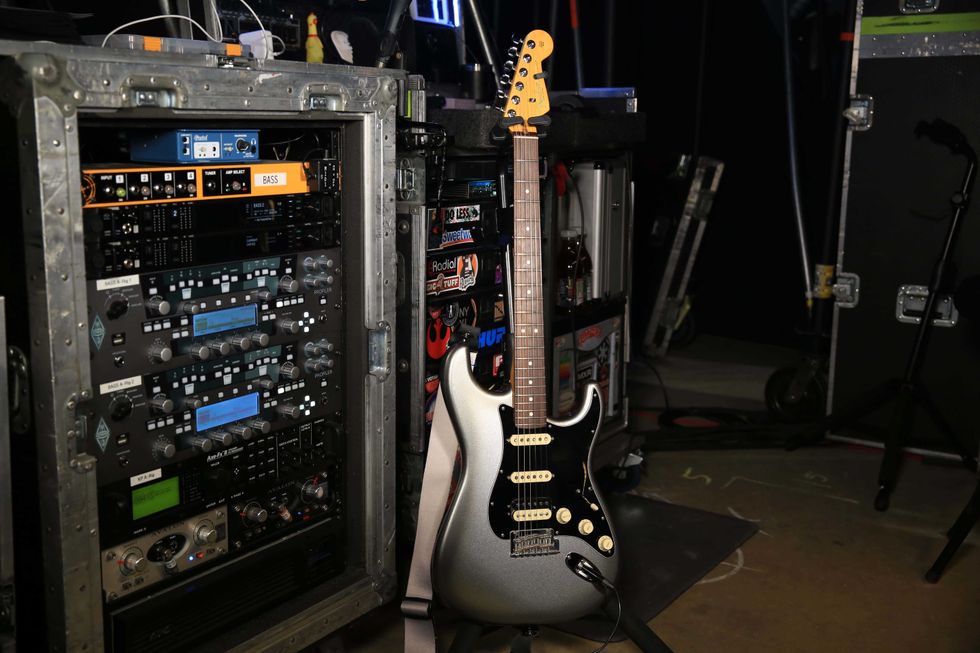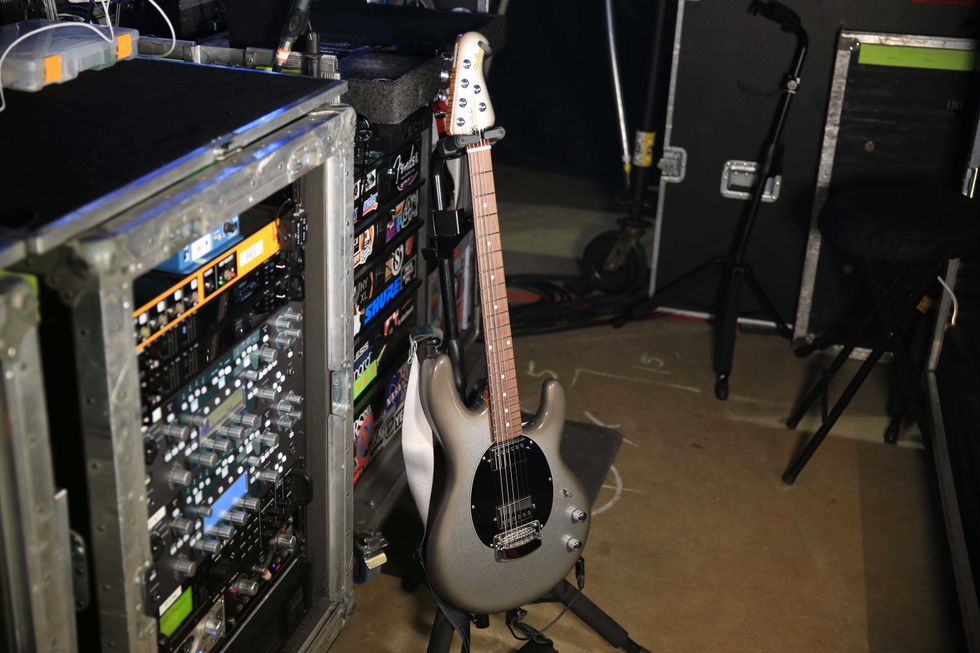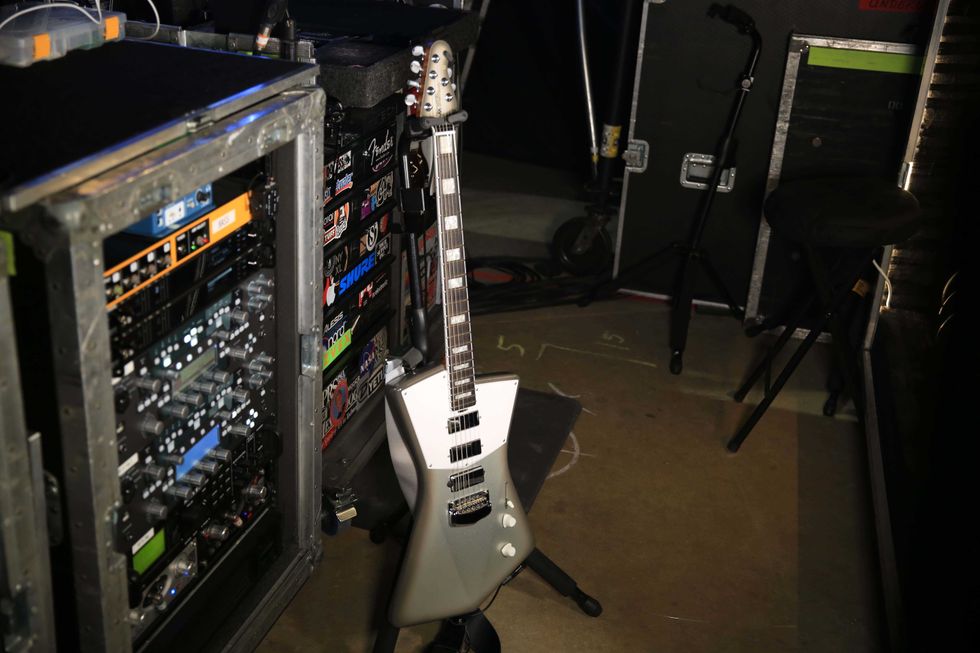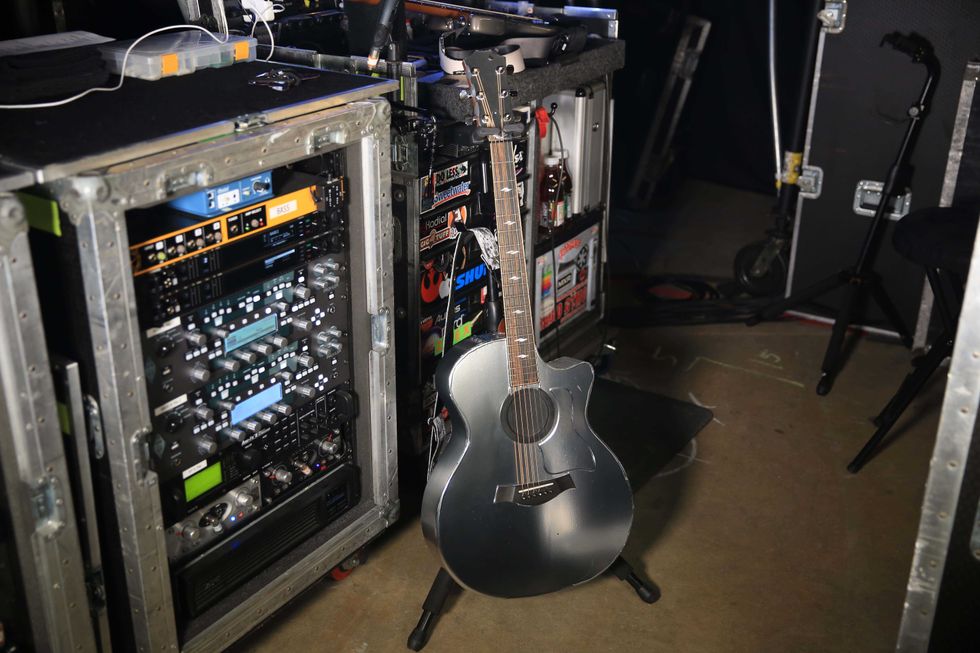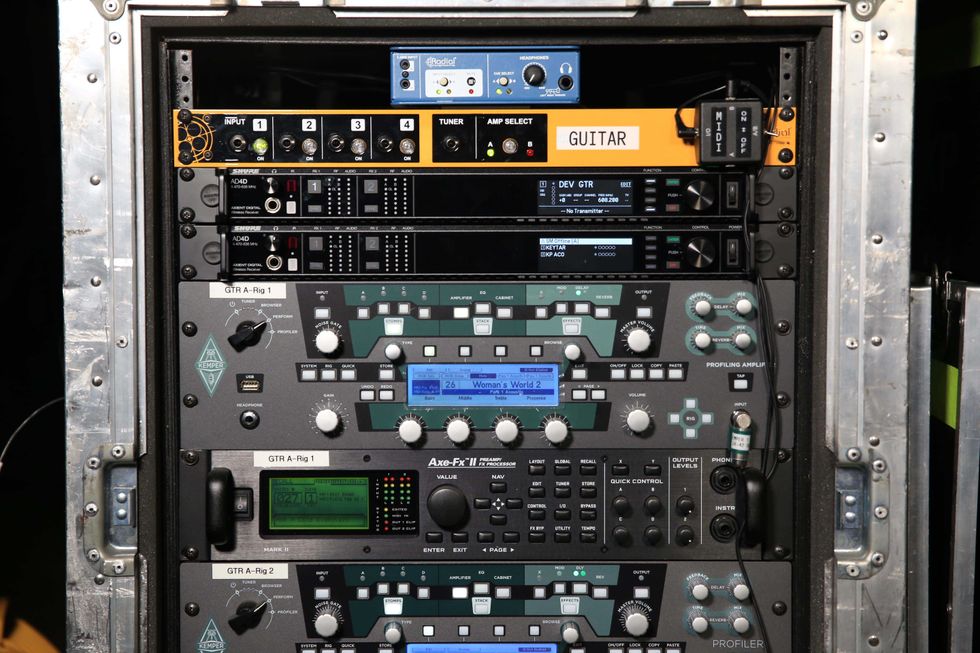“There is a comfort to it, in the choreography,” Carrie Brownstein tells me on a call. She’s talking about playing guitar, as she explains how, in the making of Sleater-Kinney’s new album Little Rope, she focused more on her connection with the instrument than on her other role as vocalist in the band. “I know what to do with my hands and with my body on guitar. It also is such an act of love to play. Sometimes it’s frustrating, sometimes it’s meaningless, and you’re just playing sort of in the same way you would meditate or just chew gum. But it felt almost prayer-like, or, like I said, like love to just play.
“The note bend emulates the human experience so perfectly,” she continues. “It’s not static. You can be in one spot and have to bend to an experience. And I love that about guitar, that it can go in and out of these static moments.”
Of course, Sleater-Kinney’s music doesn’t really contain static moments, exactly—there might be quieter sections here and there, but even then, it’s fervent and kinetic. And, as Brownstein and co-bandleader/guitarist Corin Tucker have been in the punk scene for over 30 years, they know how to write in a way that not only captures the spirit of the genre, but expands its dimensions.

Brownstein and Tucker have always shared the roles of guitarist and vocalist in Sleater-Kinney, but on Little Rope, Tucker took on more vocal responsibilities than in the past.
Little Rope opens in the eye of an electrical storm on “Hell,” with a calm introduction that soon shifts to a wailing, mid-tempo upheaval. As the album continues, it speaks in elemental punk with a helping of pop-rock savvy, but when you’re fully in tune with it, it’s more like walking through a home that’s being consumed by a chemical fire. The flames are explosions of blue and green, and it smells like burning wood and acetate, but as you walk through unharmed, you realize it’s all been expertly staged. “The thing you fear the most will hunt you down,” the duo soothsays on “Hunt You Down,” as Brownstein later confides in the verse, “Sorrow hides outside the door disguised as luck / It looks me in the eye / It seems to know me.” More colors in the fire are heard in “Say It Like You Mean It,” with its catchy refrain belying its heartbreak, and the album’s closer, “Untidy Creature,” which starts heavy and raw before moving into a brief but pensive reflection as Tucker sings, “You built a cage but your measurements wrong.” It’s that kind of prismatic emotional topography that makes it clear how Sleater-Kinney has been going strong for all these years.
“I know what to do with my hands and with my body on guitar. It also is such an act of love to play.”—Carrie Brownstein
The writing of the album, which eventually became their 11th studio full-length, started as far back as 2021. “The first song was ‘Untidy Creature,’” shares Brownstein. “That had a very classic writing process to it, where I have a riff and Corin has a vocal line, and we just meld them together. We are often skeptical of that, because we’ve been doing that for a long time. But it really captured this loss and longing and vulnerability that would end up being very present across the album.”
In the fall of 2022, Tucker and Brownstein had around six or seven songs down, and were planning on writing about five more, when Brownstein received life-altering news. While recording in Los Angeles, she got a call from Tucker—the U.S. Embassy in Italy had been unsuccessfully trying to reach Brownstein and her sister, but managed to connect with Tucker, who is Brownstein’s emergency contact. A few calls later, Brownstein finally got in touch with her sister, who then relayed the message that their mother and stepfather had been killed in a car crash while vacationing in Italy.
In the midst of processing the tragedy, Brownstein decided to stay the course with the making of Little Rope, and found relief in continuing to create music for it. “I just wrote copiously,” she says. “I really needed the routine of it, and to sort of posit myself in time and space. Grief is so incoherent, so disorienting. I needed the songs to be the language that I didn’t have.” (“Hunt You Down” was one of the songs that came after the accident, and was written about it specifically.)
“Grief was unfamiliar,” she adds. “I had never been thrust into it in such a primal way. Suddenly it was such a nascent, uncomfortable feeling for me, and guitar was such an antidote to that. It made me appreciate the instrument for its malleability, for its expressiveness. I started doing all the fundamental things that are so obvious to guitar players. I felt like I was experiencing them in a new way.”
“Grief is so incoherent, so disorienting. I needed the songs to be the language that I didn’t have.”—Carrie Brownstein
Tucker shares, “I could tell that Carrie really wanted to finish the record. She didn’t want to just not have anything to do. So we finished things; I gave her ideas and she would sit and rework things all day long, eight hours a day. That became the pathway for how we dealt with what had happened.
“In a way it added to the album’s sense of purpose,” Tucker continues, “of feeling like, ‘Can we make this world strong enough to handle life’s ups and downs? Can we make this outlet enough of a joy and also enough of a container to handle your worst moments?’”
Carrie Brownstein's Gear

When songwriting, Brownstein and Tucker are suspicious of the songs that come easily, and those don’t always make it onto their albums.
Photo by Tim Bugbee/tinnitus photography
Guitars
- 1972 Gibson SG
- 1973 Guild S-100
- 1977 Fender Thinline Telecaster
- 2014 Old Style Guitar Shop custom-built semi-hollow
Amps
- Fender Deluxe Reverb
Effects
- Klon Centaur
- ZVEX Super Hard On
- EarthQuaker Devices White Light
- Roland Double Beat
- Eventide PitchFactor
- Strymon TimeLine
- Maestro Fuzz-Tone
- Catalinbread Belle Epoch
Strings & Picks
- Ernie Ball Power Slinky
- Jim Dunlop .6 mm
Brownstein taking solace in the guitar also meant reducing her contributions to vocals, as singing felt too vulnerable for her at the time. As a result, Tucker took on more of those responsibilities than in the past. “It made me dig deeper and find a more passionate and diverse range of singing styles to bring variety to the album,” says Tucker.
For the album’s production, Brownstein and Tucker worked with John Congleton (St. Vincent, Swans, Mountain Goats), who pushed Tucker to reach a “higher emotional peak” with her voice. “There was just an atmosphere that [created] a need for a strong intensity with the performances,” Tucker shares.
“Say It Like You Mean It” was one song in particular that required some additional effort. “John’s reaction [to my vocal part] was like, ‘I don’t think that’s really strong enough.’ Which of course made me really, um, frustrated,” she laughs. “So I just summoned my patience and said, ‘Alright, let me think about it.’” The next day, she came back with an idea of singing the melody in a higher register. “The crescendo of the song then had a larger trajectory. It had somewhere else to go.”
“In a way it added to the album’s sense of purpose of feeling like, ‘Can we make this world strong enough to handle life’s ups and downs?’”—Corin Tucker
When it comes to guitar playing, Tucker doesn’t have much of an emotional connection with gear, while Brownstein, on the other hand, happens to have a passion for it. Her main guitar is a 1972 Gibson SG, “from the dubious and inconsistent Norlin era,” she says. It has a thin neck that makes it more playable for her, and “a smooth tone with a hint of growl.” Another one of her axes is a ’70s Guild S-100. “It always surprises me with its versatility. I think it’s going to be dark and grimy, but then it will have more dimension and levity than that. I also appreciate the vibrato bar on it, which allows things to get ugly and weird.”
Brownstein is the proud owner of a Klon Centaur, along with a Roland Double Beat, Catalinbread Belle Epoch, and Eventide PitchFactor, among a few other pedals. “I would say that distortion is still my favorite. It’s the first language I really understood in terms of guitar—that raw power, that small dose of corrosion,” she elaborates. “I also love chorus, flange, and harmonizers. Basically, things that make the notes thick and rubbery. When we start writing a new album, I usually go pedal shopping. Even if I don’t end up using the effect on the song, I like the way it makes me rethink the guitar and how I play it. I love the way effects pedals can expand your vocabulary and make you think about single notes or melody in a different way.”
Corin Tucker's Gear

While Tucker doesn’t love gear as much as her guitarist cohort, she always uses a 1965 Fender Showman amp head to achieve her Sleater-Kinney tone.
Photo by Tim Bugbee/tinnitus photography
Guitars
- Gibson Les Paul Tribute Goldtop
Amps
- 1965 Fender Showman 2-Channel 85-watt with 4x10 cabinet
Effects
- Catalinbread Formula 5F6
- Eventide H9
- EarthQuaker The Warden
Strings & Picks
- D’Addario .010
- Jim Dunlop Nylon Gray .73 mm
And although Tucker doesn’t have that same connection with her musical equipment, she shares that she’s “created a very specific sound for Sleater-Kinney—a very low-end sound for a guitar.” To achieve that sound, she uses a 1965 Fender Showman 85-watt black-panel amp head with a 4x10 cabinet. Recently, the Fender head was stolen, so she went out and bought the exact same one to replace it.
It’s worth noting that Tucker and Brownstein have been a musical pair for the entirety of Sleater-Kinney’s run, which has spanned 30 years (the band was inactive between 2006 and their reunion in 2014). Before founding it together in 1994, Brownstein was in Excuse 17, and Tucker, Heavens to Betsy. The latter two groups were part of the early riot grrrl scene that originated in Olympia, Washington, and the greater Pacific Northwest, and while Sleater-Kinney has come to be viewed as riot grrrl as well, Tucker and Brownstein think of themselves as slightly post riot grrrl because of the more specific timeline they were there to witness. When asked about their roles as leaders in the queer punk scene, Brownstein says she sees early-’90s queercore bands like Team Dresch, Tribe 8, and Pansy Division as being more “unabashedly queer at a time when it was so scary to be that.”
“If we do have a voice at all for people, it’s to say, ‘You’re not alone, and we are with you.’”—Corin Tucker
Tucker expresses, “We think it’s really important to speak out about queer and trans issues in the U.S., especially right now when so many of those rights are being rolled back and people are being trespassed upon. If we do have a voice at all for people, it’s to say, ‘You’re not alone, and we are with you.’ And it’s wrong that young people are losing gender-affirming care in some states. We think that’s awful.”
Aside from that advocacy, Brownstein says of being seen as a role model, “The most productive thing I can do to protect any goodwill that I’ve accrued [laughs], is to, one, be kind and compassionate, but also continue to push myself and put things out in the world that hopefully people connect to.”

One of Brownstein’s main guitars is a 1972 Gibson SG, seen here.
Photo by Debi Del Grande
Speaking of that kind of connection, although I have kept my identity a secret until this point in this article, I have been a fan of Sleater-Kinney for years, and shared that with Brownstein at the beginning of our conversation. Other fans out there will be pleased to know how kind she was in her response. She shares, “Fandom keeps you open, porous, and curious, and all the things that should be required as a human being, and certainly will help to ward off cynicism. So I have a lot of empathy and understanding for people who might place that on me, because I do understand that that is a way of guiding yourself through the world. I understand the language of fandom because I turned to it so much, especially when I was young, as a way of explaining my own predicament before I had the words to explain it on my own.”
“It’s part of what I love about music and art, is that it occupies a space that asks more questions than it provides answers.”—Carrie Brownstein
Throughout our conversation, Brownstein displays natural modesty, takes her time to carefully articulate thoughts, and shows sensitivity towards my own self-consciousness while speaking with someone I admire. One subject that comes up is her relationship with spirituality, as she uses the words “prayer” and “meditation” in describing her guitar playing. She shares that it has a new presence in her life after her mother and stepfather’s passing, and elaborates on how it relates to her music.
“I don’t know how you’d be a creative person or a person steeped in music and not have some sense of otherworldliness, like some sense of the liminal or the in-between, or some conversation that transcends the everyday,” she says. “It’s part of what I love about music and art, is that it occupies a space that asks more questions than it provides answers. There’s something spiritual about that.”
YouTube It
Performing live on The SoCal Sound radio show, Brownstein sings lead vox on “Hunt You Down” while Tucker chimes in on the choruses, as both carry the song’s minimalistic, incisive guitar lines.







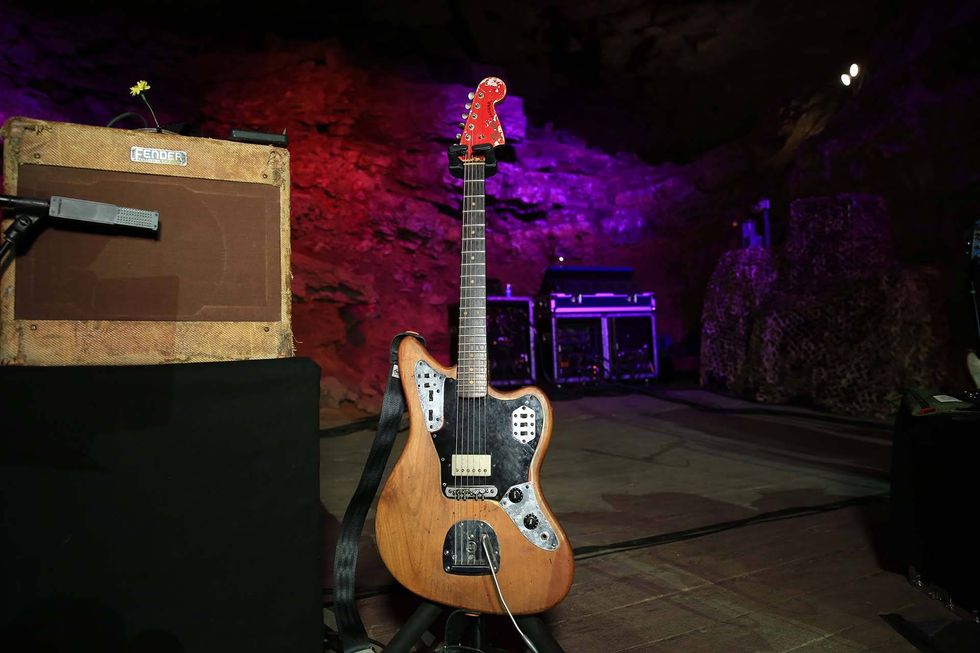
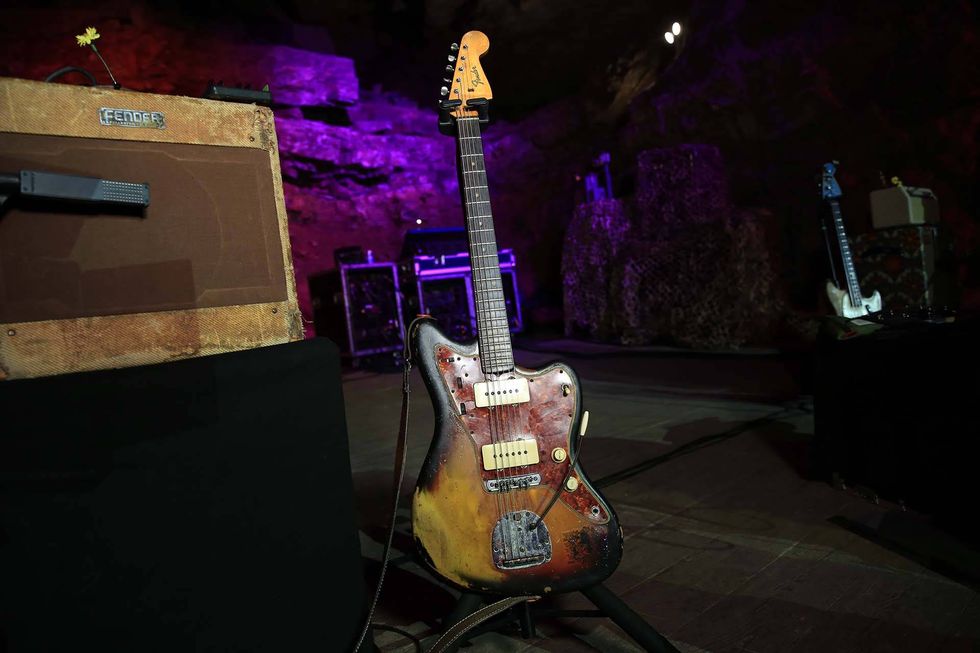


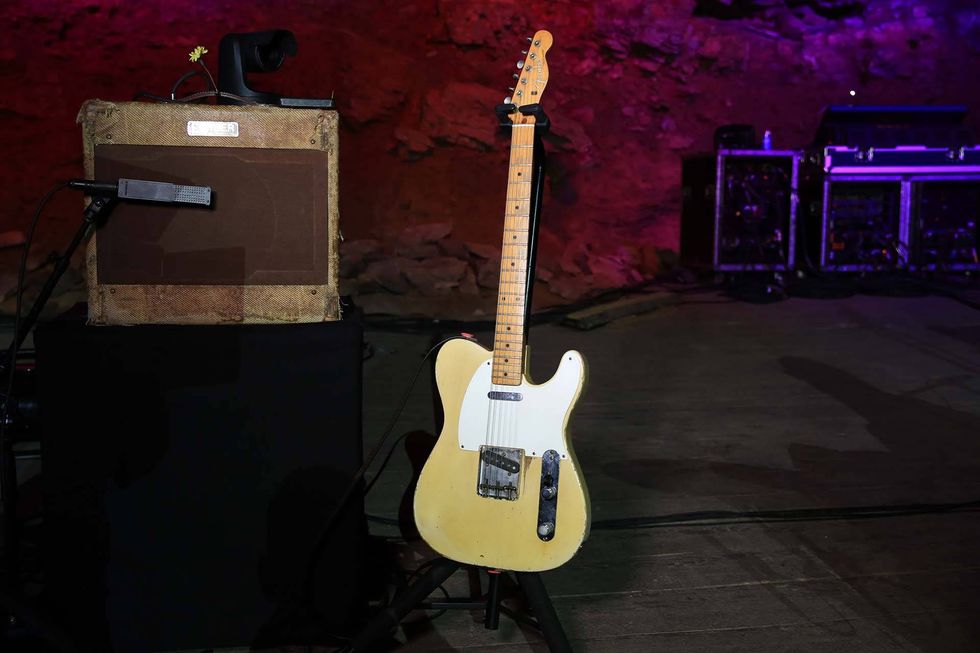
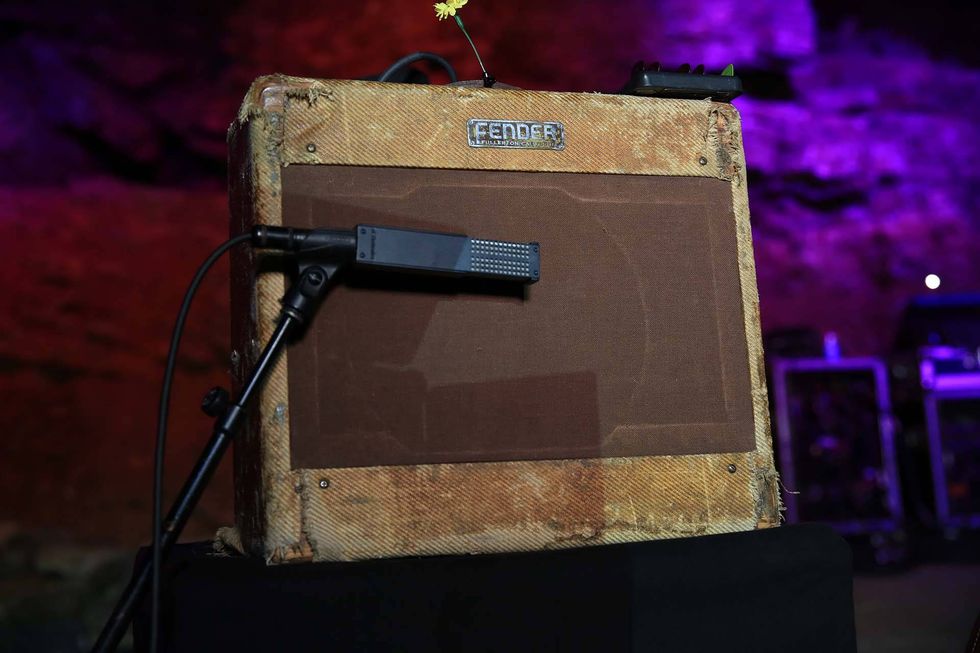
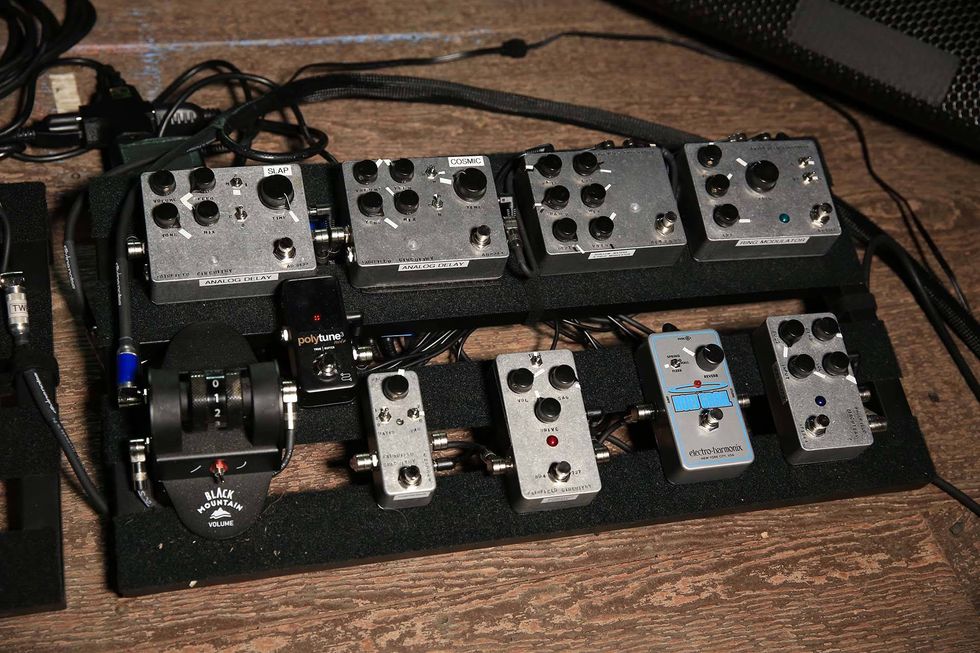
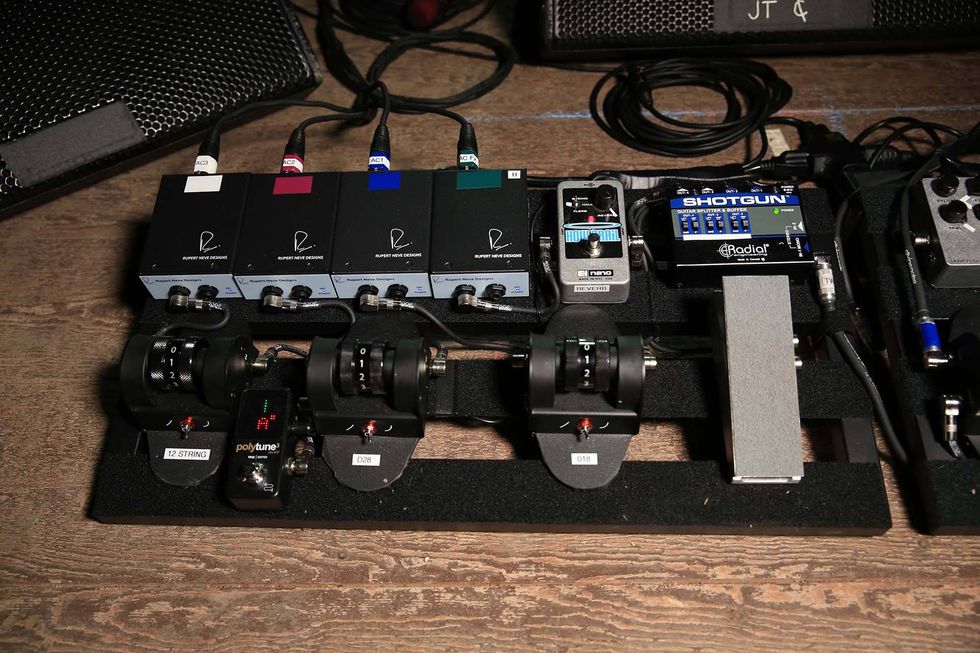

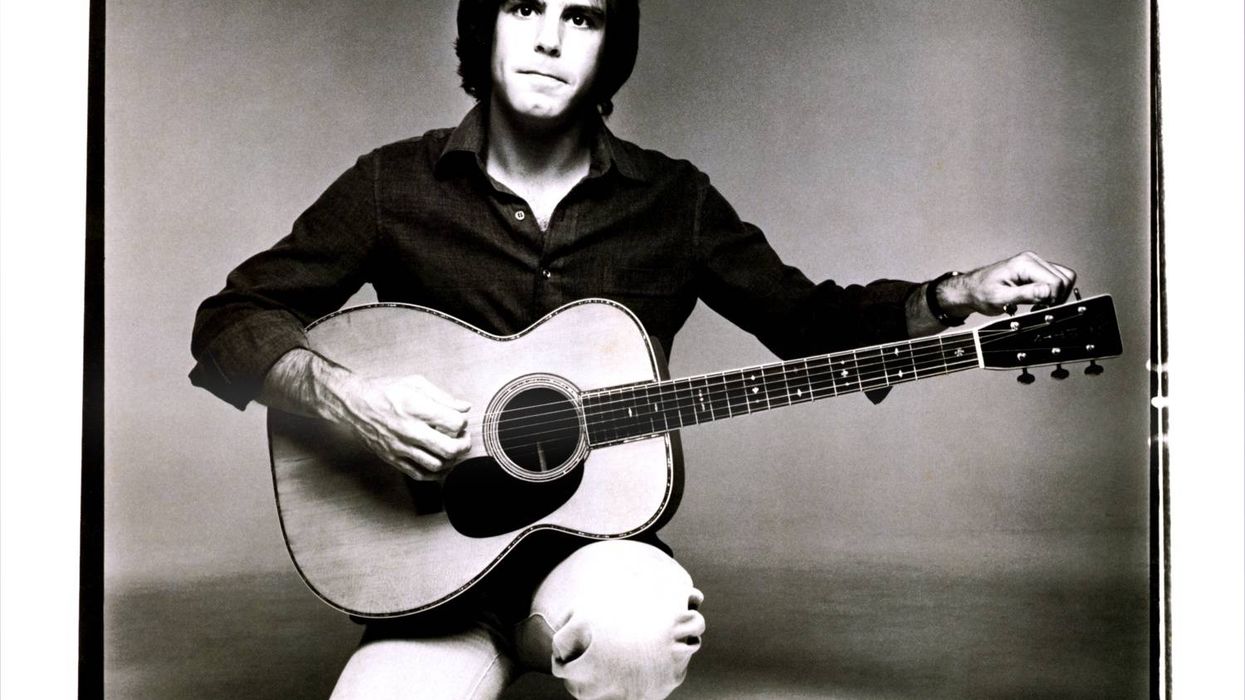
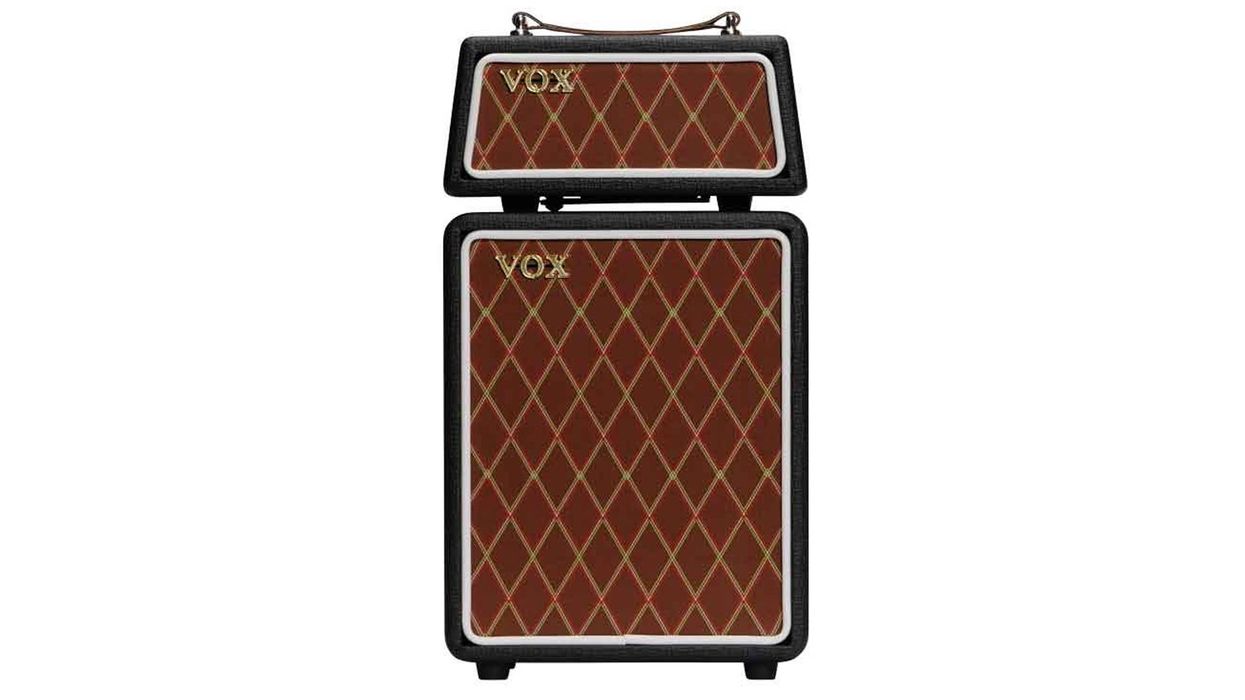
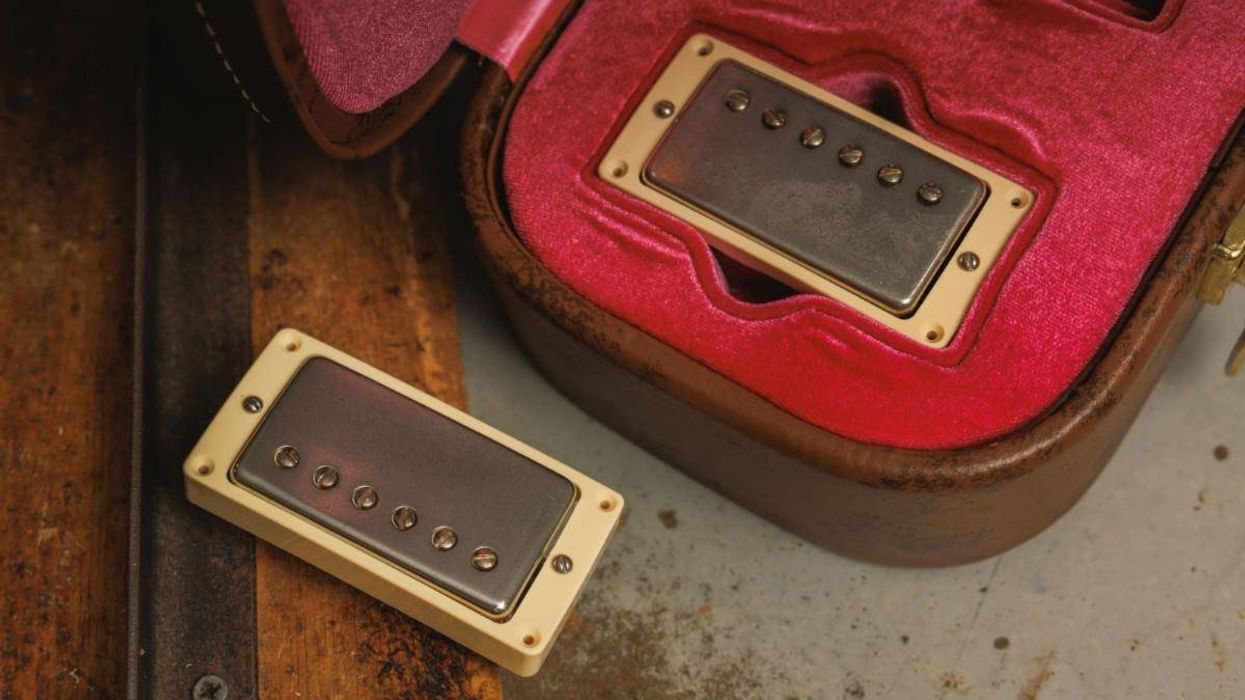
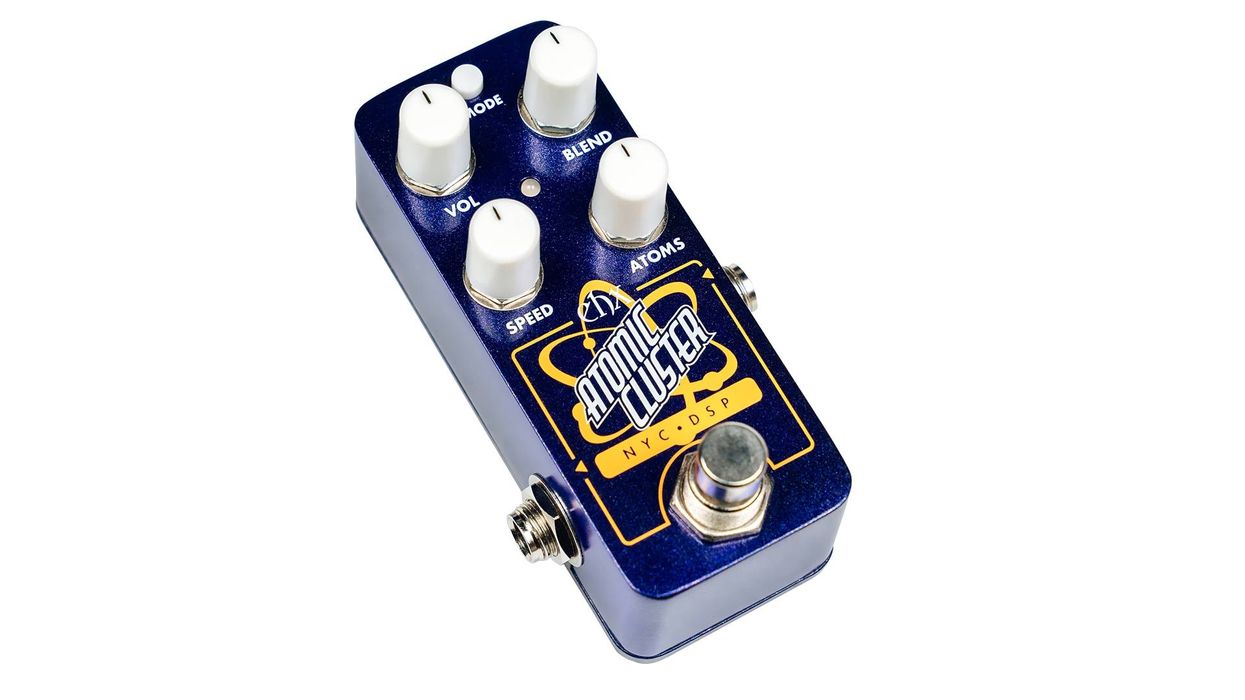


![Rig Rundown: AFI [2025]](https://www.premierguitar.com/media-library/youtube.jpg?id=62064741&width=1245&height=700&quality=70&coordinates=0%2C0%2C0%2C0)




















 Zach loves his Sovtek Mig 60 head, which he plays through a cab he built himself at a pipe-organ shop in Denver. Every glue joint is lined with thin leather for maximum air tightness, and it’s stocked with Celestion G12M Greenback speakers.
Zach loves his Sovtek Mig 60 head, which he plays through a cab he built himself at a pipe-organ shop in Denver. Every glue joint is lined with thin leather for maximum air tightness, and it’s stocked with Celestion G12M Greenback speakers.












![Devon Eisenbarger [Katy Perry] Rig Rundown](https://www.premierguitar.com/media-library/youtube.jpg?id=61774583&width=1245&height=700&quality=70&coordinates=0%2C0%2C0%2C0)
